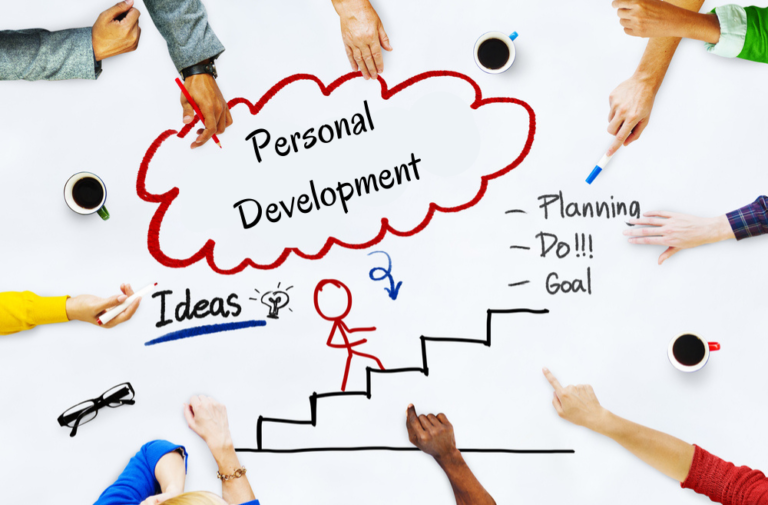Advancing yourself and achieving your goals can sometimes feel like an uphill battle. Whether you’re seeking personal growth or career success, navigating through the complexities of self-improvement can be challenging. The good news is that, with the right approach and tools, you can break through barriers and experience meaningful progress. In this guide, we’ll explore the essentials of self and goals advancement and how Personal Development Coaching can help you get there faster.
Why Self and Goals Advancement Matter
Self-advancement and goal-setting are vital for living a fulfilling and purposeful life. When you focus on self-advancement, you’re working on developing your mindset, skills, and emotional intelligence—qualities that support you in overcoming challenges. Meanwhile, advancing your goals involves identifying clear objectives that align with your values and taking consistent action to achieve them. Together, these two aspects create a powerful cycle of growth and success.
Without purposeful self-advancement, it’s easy to feel stuck or unfulfilled. Similarly, vague or poorly structured goals can lead to frustration or burnout. The combination of personal growth and clear goal achievement gives you the confidence to move forward, no matter how ambitious your objectives are.
Common Barriers to Achieving Your Goals
Before you start setting goals and working toward self-improvement, it’s important to recognize what might hold you back. Understanding and addressing these barriers will help you overcome them more effectively:
- Lack of Clarity: Unclear or undefined goals make it difficult to know what direction to take.
- Fear of Failure: Anxiety about not succeeding often prevents you from even trying.
- Procrastination: Putting off tasks leads to missed opportunities and delayed progress.
- Inconsistent Effort: Sporadic attempts to work on goals can lead to stagnation.
- Self-Doubt: Limiting beliefs and negative self-talk create mental roadblocks.
Overcoming these obstacles requires strategies tailored to your individual needs and circumstances.
Steps to Advance Yourself and Achieve Your Goals
Once you’ve recognized the challenges you face, it’s time to explore the strategies that will help you succeed. Here’s a comprehensive plan to guide your self-advancement and goal-setting journey.
1. Clarify Your Goals
The first step toward advancing yourself and your goals is clarity. A goal that’s too broad or vague can be overwhelming and hard to pursue. That’s why it’s essential to make your goals specific and actionable. Using the SMART goal framework is a good way to do this.
- Specific: Make sure your goals are clear and well-defined.
- Measurable: Ensure you can track your progress.
- Achievable: Set realistic goals within your capabilities.
- Relevant: Align your goals with your values and long-term objectives.
- Time-Bound: Give yourself deadlines to stay accountable.
- Example: Rather than saying “I want to be more organized,” set a goal like, “I will declutter my workspace and create an organization system within two weeks.”
2. Create an Action Plan
Once your goals are clear, break them down into manageable steps. This helps reduce feelings of overwhelm and gives you a clear path to follow.
- Tip: Break large goals into smaller milestones. For example, if your goal is to save $10,000, break it down into monthly savings targets. This makes the goal seem more achievable and allows you to track progress more effectively.
- Use tools: Consider using digital tools like project management apps, calendars, or habit-tracking apps to keep yourself organized.
3. Develop Self-Discipline
Consistency is key when it comes to self-improvement. It’s easy to feel motivated at the start, but what happens when that initial drive fades? Developing self-discipline ensures that you stay on course, even when the journey becomes tough.
- Pomodoro Technique: This method involves working in short, focused intervals (usually 25 minutes), followed by short breaks. This structure helps maintain focus while preventing burnout.
- Daily routines: Incorporating habits into your daily routine can make tasks feel less like chores and more like natural parts of your day.
4. Cultivate Emotional Resilience
Resilience is your ability to handle setbacks without losing motivation. The path to achieving your goals won’t always be smooth, and emotional resilience helps you manage stress, setbacks, and unexpected obstacles.
- Practice mindfulness: Techniques such as mindfulness meditation or deep-breathing exercises can help you remain calm and focused in stressful situations.
- Reframe challenges: Instead of viewing obstacles as failures, see them as learning opportunities. Ask yourself, “What can I learn from this experience to improve next time?”
5. Embrace a Growth Mindset
A growth mindset encourages you to believe that your abilities and intelligence can be developed through effort. When you adopt this mindset, you are more likely to take on challenges, learn from feedback, and keep improving.
- Tip: When facing difficulties, remind yourself that it’s okay to struggle. View each challenge as a stepping stone toward becoming better, rather than as a reflection of your limitations.
6. Seek Support and Accountability
Achieving your goals doesn’t have to be a solo journey. Seeking support from mentors, friends, or a coach can provide valuable insights and keep you accountable. This is where Personal Development Coaching can be incredibly beneficial.
How Personal Development Coaching Can Help You
Personal Development Coaching is a powerful tool for those who want to achieve their goals faster and with more confidence. A coach provides guidance, helps you break down your goals, and offers tailored strategies to suit your unique challenges and circumstances.
Key Benefits of Personal Development Coaching:
- Clarity and Focus: A coach helps you define and refine your goals so you have a clear roadmap to follow.
- Overcome Obstacles: Coaches help you identify and overcome mental barriers like fear of failure or self-doubt.
- Accountability: Regular check-ins with a coach keep you accountable for your progress and help you stay on track.
- Personalized Strategies: Instead of generic advice, coaching provides strategies that are tailored to your specific needs and challenges.
- Motivation and Confidence: A coach offers encouragement and builds your confidence as you make steady progress toward your goals.
If you’ve been struggling to achieve your goals on your own, or if you feel stuck in your personal development journey, working with a coach can provide the breakthrough you need.
Click here to start your Personal Development Coaching journey today
FAQs on Self and Goals Advancement
1. What is personal development coaching?
Personal development coaching helps individuals improve various areas of their life, from goal-setting to overcoming challenges and building better habits. A coach guides you through a personalized process of growth and achievement.
2. How does coaching help with goal achievement?
Coaches work with you to set clear, actionable goals, identify obstacles, and create strategies to overcome them. They also hold you accountable, ensuring you make steady progress.
3. How long does it take to see results with coaching?
This depends on your specific goals and the effort you put into the process. Some people notice significant changes within weeks, while others may take a few months to see long-term results.
4. How do I know if personal development coaching is right for me?
If you’re feeling stuck, overwhelmed, or unsure how to achieve your goals, coaching can provide clarity and guidance. It’s especially helpful if you struggle with self-discipline or need extra accountability.
5. What should I expect during a personal development coaching session?
During a session, your coach will work with you to assess your current situation, clarify your goals, and create an actionable plan. Sessions also involve discussing progress and addressing any challenges or setbacks you may be facing.
6. Can coaching help me with both personal and professional goals?
Yes! Personal development coaching can help you in various areas, whether you’re working on personal goals like building self-confidence or professional objectives like career advancement.







